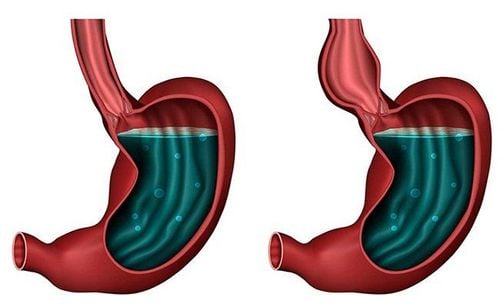This is an automatically translated article.
Diet is a very important part of health in general and heart health in particular. If you do not follow a proper cardiovascular disease diet, your risk of developing the disease increases and you will experience health problems such as: high blood pressure, high blood fat, obesity, type 2 diabetes... This article will provide some questions about the relationship between cardiovascular disease and daily diet.
Question 1. Does saturated fat increase the risk of heart disease?
The relationship between saturated fat and heart disease has been questioned in recent years. This is because several systematic reviews and analyzes of prospective studies have reported an association between saturated fat intake and a higher risk of death from heart disease. However, according to previous studies, a group of people over a period of time, there are some limitations including potential errors in the assessment of diet, choice of carbohydrates to compare nutrients nutrients and may be confounded by other dietary and lifestyle factors.
The link between dietary fat and heart disease is conducting a randomized trial to determine nutrition for people with heart disease and see if changes in diet can reduce the risk of pain heart or well-known markers of increased risk such as LDL-cholesterol. As studies have shown a small but significant reduction in cardiovascular risk when saturation is replaced by insoluble or complex carbohydrates, supports current dietary recommendations. In the United Kingdom, a draft review of saturation and heart disease by the Science Advisory Committee on Nutrition has been published.

Chế độ dinh dưỡng khoa học giúp cải thiện bệnh lý tim mạch
Question 2. Should we focus on diet to reduce cardiovascular disease risk rather than choosing foods or nutrients alone?
Research investigating the role of diet in health and disease including heart disease what to eat? These studies often evaluate the role of single nutrients or foods, but we are not consuming single nutrients/foods in combination. The evidence accumulated in recent years has highlighted the importance of a dietary modeling approach to healthy eating advice, i.e. dietary guidelines will be based on fact-based guidance. products around the world. Food-based dietary guidelines tend to have similar features, with more emphasis on using fruits and vegetables, legumes, whole grains, poultry, and fish in daily diets. day. In general, there is strong evidence to reduce the risk of developing heart disease by consuming a diet characterized by high fiber and high levels of fruits and vegetables, whole grains and calcium-rich foods; maintain a healthy weight; do exercise; Don't smoke, cut down on alcohol and smoking.
Question 3. Does fiber play a role in the risk of heart disease?
Evidence demonstrating the relationship between a high-fiber diet and reduced risk of heart disease and type 2 diabetes has accumulated over the past few decades since the dietary reference value (DRV) for fiber is considered. In its review of carbohydrates and health, the Scientific Advisory Committee on Nutrition (SACN) reviewed the evidence and found strong evidence from prospective studies that increasing dietary fiber intake (especially from grains and whole grains) reduce the risk of heart disease, type 2 diabetes, and stroke.
A randomized review of trials also shows that intake of certain types of specific fiber, such as oat bran and beta-glucans, improves blood lipid levels. Based on this evidence, the SACN recommends that UK people's fiber intake be increased to an average of 30g of AOAC fiber a day for adults, from the previous recommendation equivalent to 24g of AOAC fiber per day ( AOAC is the method currently used to determine fiber for food labeling purposes).
For comparison, the current in adults is about 18 g per day. Targets have also been established for children (15g/day for children 2–5 years, 20g/day for children 5–11 years, and 25g/day for 11–16 years).

Bổ sung nhiều chất xơ có lợi cho bệnh nhân tim mạch
Question 4. Is a low-fat diet the best approach to reducing heart disease risk?
Current dietary recommendations in the UK recommend that the average population's dietary fat intake should be reduced to 35% of dietary energy, a level that has more or less been reached for some time. in the United Kingdom, and saturated fat intake should be reduced to 11% of dietary energy, and n-6 polyunsaturates increased to 6.5% of dietary energy. However, other countries have previously adopted even lower targets for fat intake, e.g. 30% of calories for total fat within the United States, but in some countries, including the United States. Periodically, guidelines have been reviewed and there has been a move towards a total fat range, such as 20–35%, rather than a single value. This strategy for dietary fat is primarily aimed at lowering LDL-cholesterol levels. Over time, however, evidence has accumulated about the ability of low-fat/high-carbohydrate diets to adversely affect other blood lipids. And about their potential benefits of fatty acids on other cardiovascular risk factors, especially insulin resistance. This evidence points to the need to pay more attention to the positive properties of the n-3 chain fatty acids found in fatty fish and to replace saturated with unsaturated ones (as found in vegetable oils). animals, nuts and oily fish) more about changing the nature of dietary fats.
Some experts have argued that to include these insolubles in sufficient amounts for a more flexible overall approach to fat recommendation, especially for those with metabolic syndrome , as is now accepted in some countries.

Chế độ ăn chất béo nên được giảm tỷ lệ xuống để giảm nguy cơ bệnh tim
Question 5. Are we meeting the current non-targeted diet for cardiovascular disease prevention in the UK?
It is recommended to adjust the population mean fat intake to 35% of dietary calories with more or less found in both men and women, and good progress has been achieved with the goal of 11% energy for saturation , although there is still room for improvement. Furthermore, moderate trans fatty acid intake (which has a particularly deleterious effect on LDL-cholesterol and also endothelial function) is currently well below 2% of the energy target of 0.5% of energy in both men and female. Mean salt intake in adults is still well above the target of 6.0 g/day, at 8.0 g/day, but this average has fallen from 9.0 g/day. The majority of people still do not meet the 5 A Day goal and use vegetables, as well as the recommended amount of free sugar and fiber for physical activity (30 minutes of at least moderate intensity activity). The UK Government has recognized the need for a review of the evidence regarding dietary fat advice, and SACN has published its draft recommendations on saturated fat guidelines. fat and health.
Question 6. Should we be concerned about the effect of children's diets on future risk of heart disease?
Observational studies have shown a link between childhood obesity and rapid weight gain during childhood or adolescence with a higher risk of heart disease as an adult. It is known that childhood obesity rates are increasing, and the development of type 2 diabetes in children is also increasing rapidly in incidence. Dietary supplements of some micronutrients also appear to be low in certain populations, especially girls and young women, and worrisomely some of these may influence risk. heart disease.

Trẻ bị béo phì sẽ tăng nguy cơ mắc bệnh tim mạch khi trưởng thành
Question 7. Do dietary recommendations need to be revised based on new research linking diet and cardiovascular disease?
Since this comprehensive review of the heart disease guide diet what to eat or what heart disease to avoid?, this activity has helped prevent heart disease in the UK, several dietary recommendations were reviewed and revised, including those for salt, free sugars and fiber. A review of saturated fat and health was also recently conducted by the Nutrition Committee's Scientific Adviser.
To protect heart health in general and detect early signs of myocardial infarction and stroke, customers can sign up for Cardiovascular Screening Package - Basic Cardiovascular Examination of Vinmec International General Hospital . The examination package helps to detect cardiovascular problems at the earliest through tests and modern imaging methods. The package is for all ages, genders and is especially essential for people with risk factors for cardiovascular disease.
Please dial HOTLINE for more information or register for an appointment HERE. Download MyVinmec app to make appointments faster and to manage your bookings easily.
Reference source: nutrition.org.uk













